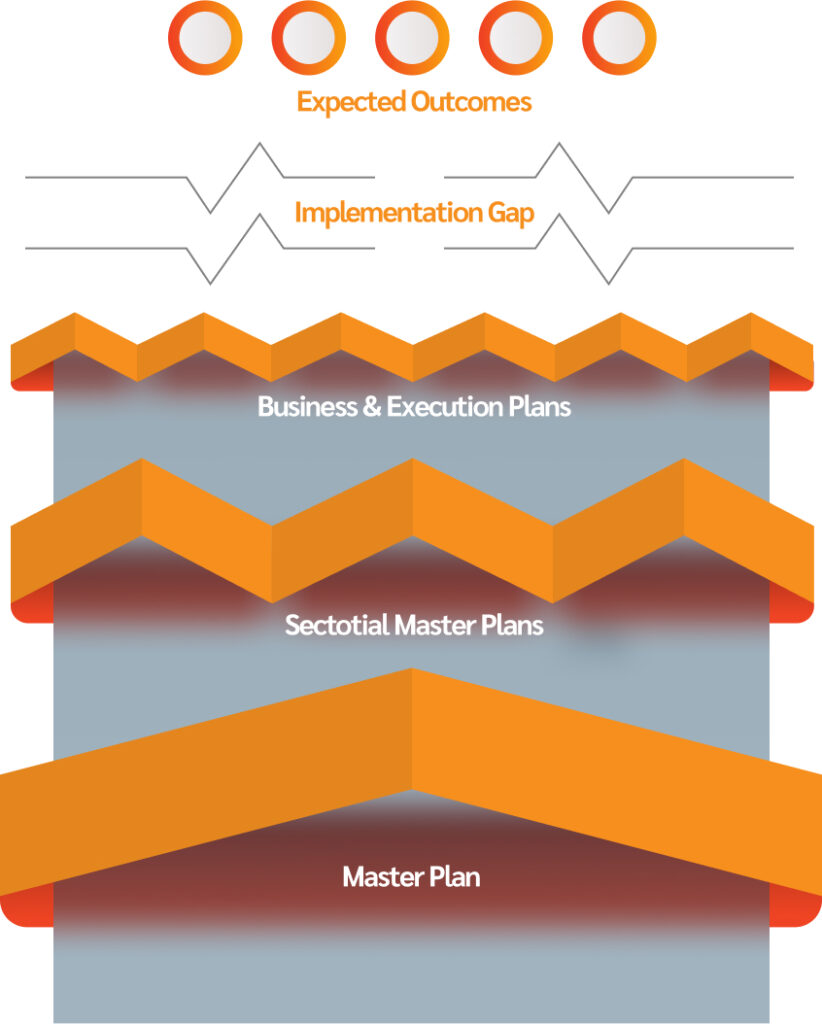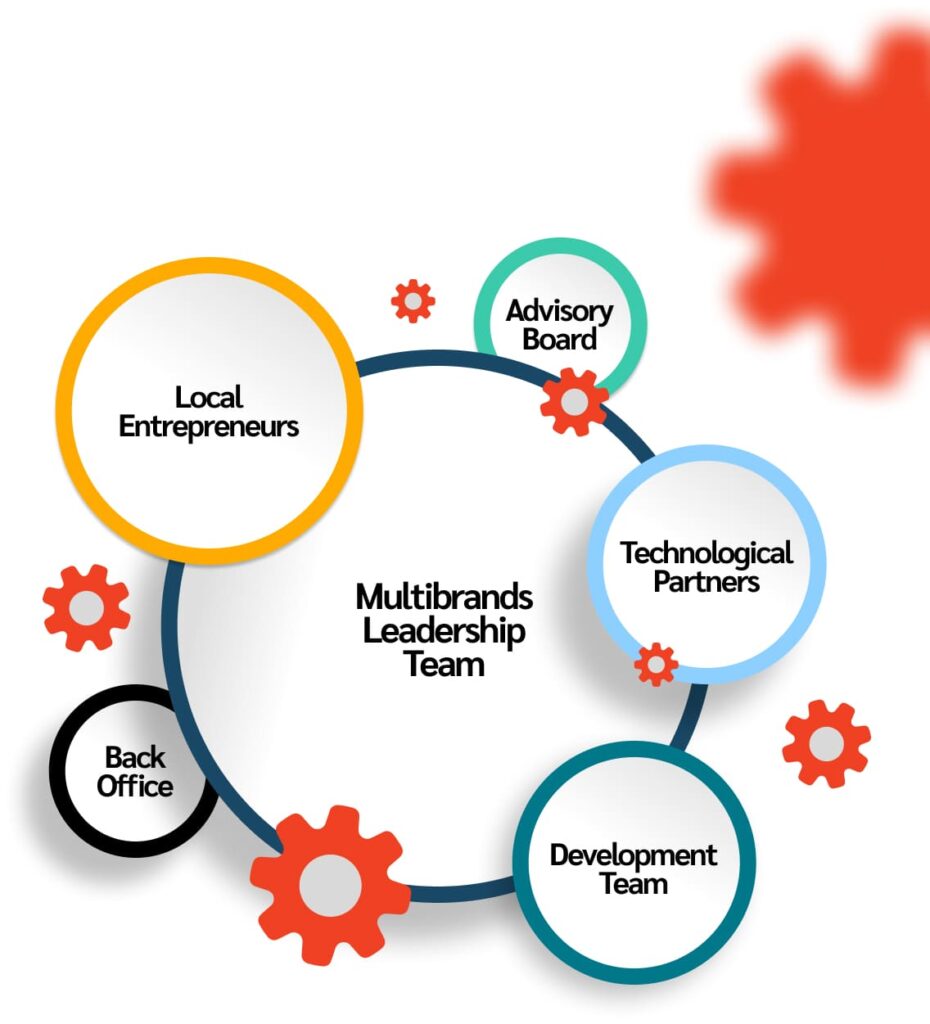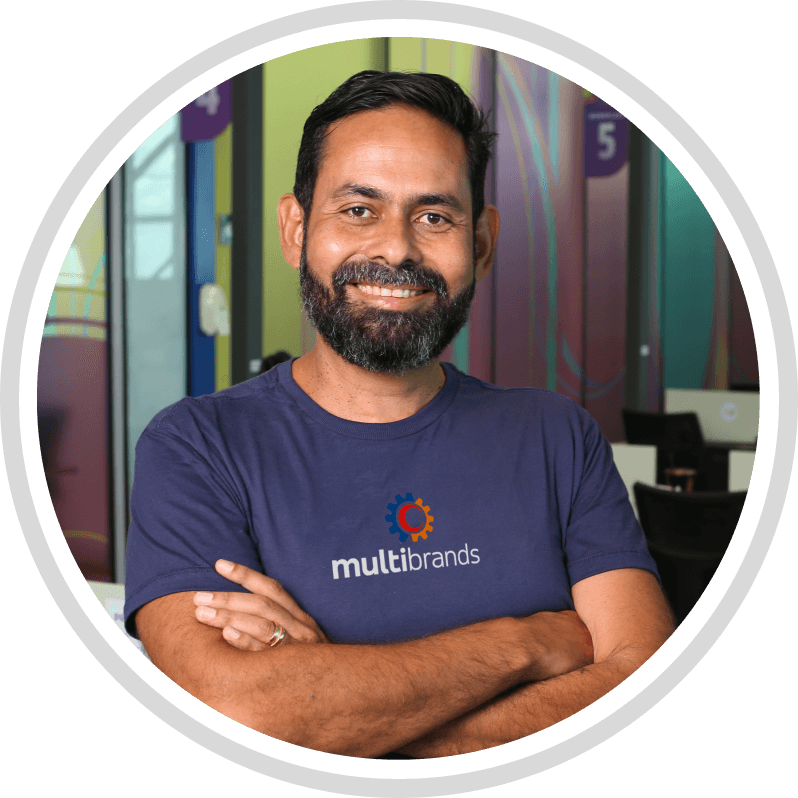“Empowering People, Companies, and Countries to fully realize their potential and achieve their goals, generating a positive and lasting impact in society.”

About Us
Multibrands is a leading cross-sector business development and project management firm that has operated in Angola, Brazil, Equatorial Guinea, Mozambique, and South Africa since the late 1990s.
More
“We provide the vital components for successful business and project implementation”

Securing funding from both public and private sectors.
Extensive experience in executing complex projects.
Utilizing technical expertise to transfer technology and know-how, empowering local content.
Leveraging our extensive international network of business relationships across various industries to support in-country operations.
Our Business Development Process
We work in all phases

Prospection
Aligning needs to available resources, Multibrands identifies the best solutions to help clients solve their problems and realize their goals. Clients set the targets and Multibrands ensures they get there.
Analysis
Working with data and analytics tools, we support clients’ decision-making processes by providing real-time updates and offering insights across an array of financial, impact, and time horizons.
Project Finance
Seeking and combining the best available sources of funds to finance projects, we work with clients to build the most cost-effective solutions within the parameters and goals set by clients. We have a vast network of public and private international capital sources that we can bring to bear in accordance with our clients’ needs.
Implementation
Knowhow, people, funding, planning and technology are not enough to guarantee project success. Execution in king. Multibrands employs seasoned operators across an array of sectors to ensure that projects come to fruition and bear their intended fruits.
Management
Delivering “Turnkey” projects in the easy part of the game. “Operating the Machine” is the tough part. Multibrands works with clients to make things happen while ensuring that local content requirements are being met – all the while we keep projects running on schedule
Closing the Implementation Gap

In fast-growing economies, business development and project management companies play a critical role in closing the execution gap between governmental master and sectorial plans and the need to realize these initiatives expected results in a timely and efficient manor.
Multibrands’ approach is to partner with government, local businesses, and international specialists / technology partners to help organize, manage, and execute projects, ensuring that they are completed on time, within budget, and to the satisfaction of all stakeholders while ensuring that the social and economic benefits of the growth process are shared in an equitable fashion.
Business Model
“We understand that sustainable success relies on the empowerment of local content. By working closely with local technicians, entrepreneurs, and government officials, we gain valuable insight into the unique needs and challenges of the region. Rather than dictating solutions, we provide support through our international expertise and proven methodologies, helping them to achieve their goals and create meaningful social impact.”
Projects and New Ventures

International Support

Business Sectors
Health
Healthcare projects and public health programs are crucial for improving access to quality care for underserved communities, enhancing health outcomes, and reducing inequality.
This involves identifying new business opportunities and implementing initiatives, such as building new clinics and hospitals, implementing telemedicine, and training healthcare workers. Essential Public Health Programs, like primary care and disease management (e.g. Malaria, HIV/AIDS, Tuberculosis, Diabetes, and Hypertension), protect the wellbeing of the population. Providing care for indigenous and disadvantaged populations is a priority, as they often face disparities in access to healthcare. Access to mental health programs is now widely recognized as an essential component of every national healthcare program.
Women and children, who often experience negative health outcomes, must be included in programs.
Multibrands has a proven track record in healthcare projects, helping develop sustainable business models, partnering with local organizations and governments, and ensuring effective project management and monitoring to meet budget, time, and quality standards. Long-term sustainability of healthcare initiatives must be considered to ensure continued benefits to communities.
Education
Education initiatives are crucial for breaking the cycle of poverty and promoting economic development. These projects often focus on improving access to education and training for disadvantaged communities, increasing the quality of education, and providing vocational training.
Projects in the educational sphere can include the building new schools, providing teacher training, and developing curriculum. It is important to involve the community and local organizations in the planning and implementation of education projects to ensure they meet the specific needs and cultural context of the area.
Technology-based solutions like e-learning, and distance education can also be used to expand the reach of education.
Multibrands has a wealth of experience working in developing countries, where we have managed and implemented educational projects helping to improve educational outcomes and positively impacts the wider society. By leveraging our expertise in project management, Multibrands is able to bring about lasting change in these communities, providing quality education to underserved populations.
Social Impact
Social impact projects are crucial for economic development in fast-growing economies. They aim to promote sustainable growth through entrepreneurship and small business development, as well as bridge the digital divide for better access to education and jobs.
Social compensation programs, government-funded initiatives targeting poverty and inequality, play a critical role in reducing poverty and improving quality of life.
These programs typically provide financial aid, food, education, healthcare, and other support to individuals and families in poverty. These programs aim to reduce poverty, improve access to education and healthcare, and enhance overall well-being. Although the effectiveness of these programs tends to vary, they have been proven to make a positive impact.
However, social compensation programs must be part of a comprehensive strategy that also includes job creation and economic growth. It’s crucial to ensure these programs are well-designed, implemented, and monitored to maximize their impact. Multibrands has many of experience in helping public sectors administer these types of programs.
Agro
Agribusiness and family agriculture projects play a crucial role in supporting food security and economic development. Effective project implementation in this sector requires a deep understanding of the local agricultural context, including not only specific crops and farming practices but a robust understanding of local climate and soil conditions as well nutritional gaps, access to seeds and additives, local markets, and logistics dynamics.
Building strong relationships with smallholder farmers and other key stakeholders is essential. Investing in infrastructure and technology, such as irrigation systems and storage facilities, can help to increase productivity and reduce post-harvest losses. It’s also important to have a focus on sustainable practices and environmental stewardship.
Training and capacity building for local farmers and developing value chains and market linkages can help to increase income and improve livelihoods for smaller or family-owned farming operations. It’s also important to consider the gender aspect and to ensure that projects are inclusive of women, who often play a key role in family agriculture.
Social Infrastructure
Social infrastructure projects can be a catalyst for growth and development in a country. By investing in crucial areas like clean water and sanitation, affordable housing, and reliable transportation, it can help to improve the quality of life and reduce poverty for citizens. Additionally, investing in renewable energy helps to reduce reliance on non-sustainable sources of energy, and improve access to electricity.
With careful planning and execution, social infrastructure projects can have a long-lasting impact on a country and its people. However, it’s important to note that success in these projects requires strategic planning, sufficient resources, and community engagement. Inadequate funding, lack of proper project management, and resistance from local communities can hinder progress and impact the outcome of the project.
Therefore, it’s crucial to involve the communities in the planning process and make sure the projects align with their needs and aspirations. Effective collaboration with government agencies and private organizations can also ensure that resources are utilized efficiently and effectively. It’s essential to consider the long-term sustainability of these projects, as the goal is not just to provide immediate benefits, but to create a lasting legacy for future generations. This includes implementing measures to maintain infrastructure, ensuring proper maintenance and repair, and ensuring its accessibility to all.
Moreover, it’s important to keep in mind that social infrastructure projects are not a silver bullet solution to all the problems facing a country. They must be part of a comprehensive strategy that addresses broader issues like economic growth, job creation, and income inequality; the ultimate goal is to create a virtuous cycle of growth, development and progress that can help to build a better future for all.
Communications
In fast-growing economies, there are lots of moving parts and a complex array of stakeholders both in-country and overseas. Creating the tools, methodologies, and strategies for effectively communicating with this diverse set of audiences is an essential component of any development program.
One of the pitfalls of development in many resource-rich countries has been their inability to effectively share the development story in a way that brings key stakeholders – especially the masses – along with central narrative being crafter. This social disconnect has led, at best, to stymied progress, and, at worse, violence and social upheaval. Thus, working across state-owned media platforms and in concert with private sector technology, media and communications companies becomes an essential pillar of an effective state development program.
Multibrands has worked with a variety of countries in helping upgrade and build out physical communications infrastructure as well upskilling and training human communications resources across an array of fields. Multibrands executives have been active in leading place-branding initiatives on a local, regional and national level as well as working on behalf of countries to create more effective messaging vis-à-vis international media and global institutions.
Health
Healthcare projects and public health programs are crucial for improving access to quality care for underserved communities, enhancing health outcomes, and reducing inequality.
This involves identifying new business opportunities and implementing initiatives, such as building new clinics and hospitals, implementing telemedicine, and training healthcare workers. Essential Public Health Programs, like primary care and disease management (e.g. Malaria, HIV/AIDS, Tuberculosis, Diabetes, and Hypertension), protect the wellbeing of the population. Providing care for indigenous and disadvantaged populations is a priority, as they often face disparities in access to healthcare. Access to mental health programs is now widely recognized as an essential component of every national healthcare program.
Women and children, who often experience negative health outcomes, must be included in programs.
Multibrands has a proven track record in healthcare projects, helping develop sustainable business models, partnering with local organizations and governments, and ensuring effective project management and monitoring to meet budget, time, and quality standards. Long-term sustainability of healthcare initiatives must be considered to ensure continued benefits to communities.
Education
Education initiatives are crucial for breaking the cycle of poverty and promoting economic development. These projects often focus on improving access to education and training for disadvantaged communities, increasing the quality of education, and providing vocational training.
Projects in the educational sphere can include the building new schools, providing teacher training, and developing curriculum. It is important to involve the community and local organizations in the planning and implementation of education projects to ensure they meet the specific needs and cultural context of the area.
Technology-based solutions like e-learning, and distance education can also be used to expand the reach of education.
Multibrands has a wealth of experience working in developing countries, where we have managed and implemented educational projects helping to improve educational outcomes and positively impacts the wider society. By leveraging our expertise in project management, Multibrands is able to bring about lasting change in these communities, providing quality education to underserved populations.
Social Impact
Social impact projects are crucial for economic development in fast-growing economies. They aim to promote sustainable growth through entrepreneurship and small business development, as well as bridge the digital divide for better access to education and jobs.
Social compensation programs, government-funded initiatives targeting poverty and inequality, play a critical role in reducing poverty and improving quality of life.
These programs typically provide financial aid, food, education, healthcare, and other support to individuals and families in poverty. These programs aim to reduce poverty, improve access to education and healthcare, and enhance overall well-being. Although the effectiveness of these programs tends to vary, they have been proven to make a positive impact.
However, social compensation programs must be part of a comprehensive strategy that also includes job creation and economic growth. It’s crucial to ensure these programs are well-designed, implemented, and monitored to maximize their impact. Multibrands has many of experience in helping public sectors administer these types of programs.
Agro
Agribusiness and family agriculture projects play a crucial role in supporting food security and economic development. Effective project implementation in this sector requires a deep understanding of the local agricultural context, including not only specific crops and farming practices but a robust understanding of local climate and soil conditions as well nutritional gaps, access to seeds and additives, local markets, and logistics dynamics.
Building strong relationships with smallholder farmers and other key stakeholders is essential. Investing in infrastructure and technology, such as irrigation systems and storage facilities, can help to increase productivity and reduce post-harvest losses. It’s also important to have a focus on sustainable practices and environmental stewardship.
Training and capacity building for local farmers and developing value chains and market linkages can help to increase income and improve livelihoods for smaller or family-owned farming operations. It’s also important to consider the gender aspect and to ensure that projects are inclusive of women, who often play a key role in family agriculture.
Social Infrastructure
Social infrastructure projects can be a catalyst for growth and development in a country. By investing in crucial areas like clean water and sanitation, affordable housing, and reliable transportation, it can help to improve the quality of life and reduce poverty for citizens. Additionally, investing in renewable energy helps to reduce reliance on non-sustainable sources of energy, and improve access to electricity.
With careful planning and execution, social infrastructure projects can have a long-lasting impact on a country and its people. However, it’s important to note that success in these projects requires strategic planning, sufficient resources, and community engagement. Inadequate funding, lack of proper project management, and resistance from local communities can hinder progress and impact the outcome of the project.
Therefore, it’s crucial to involve the communities in the planning process and make sure the projects align with their needs and aspirations. Effective collaboration with government agencies and private organizations can also ensure that resources are utilized efficiently and effectively. It’s essential to consider the long-term sustainability of these projects, as the goal is not just to provide immediate benefits, but to create a lasting legacy for future generations. This includes implementing measures to maintain infrastructure, ensuring proper maintenance and repair, and ensuring its accessibility to all.
Moreover, it’s important to keep in mind that social infrastructure projects are not a silver bullet solution to all the problems facing a country. They must be part of a comprehensive strategy that addresses broader issues like economic growth, job creation, and income inequality; the ultimate goal is to create a virtuous cycle of growth, development and progress that can help to build a better future for all.
Communications
In fast-growing economies, there are lots of moving parts and a complex array of stakeholders both in-country and overseas. Creating the tools, methodologies, and strategies for effectively communicating with this diverse set of audiences is an essential component of any development program.
One of the pitfalls of development in many resource-rich countries has been their inability to effectively share the development story in a way that brings key stakeholders – especially the masses – along with central narrative being crafter. This social disconnect has led, at best, to stymied progress, and, at worse, violence and social upheaval. Thus, working across state-owned media platforms and in concert with private sector technology, media and communications companies becomes an essential pillar of an effective state development program.
Multibrands has worked with a variety of countries in helping upgrade and build out physical communications infrastructure as well upskilling and training human communications resources across an array of fields. Multibrands executives have been active in leading place-branding initiatives on a local, regional and national level as well as working on behalf of countries to create more effective messaging vis-à-vis international media and global institutions.
Leadership team

Arick Wierson

João Pedro Teles
Contact Us
Multibrands Corporation LTDA
Edf Mundo Plaza, Sala 1010, Salvador, Bahia, Brasil
2023 – All rights reserved